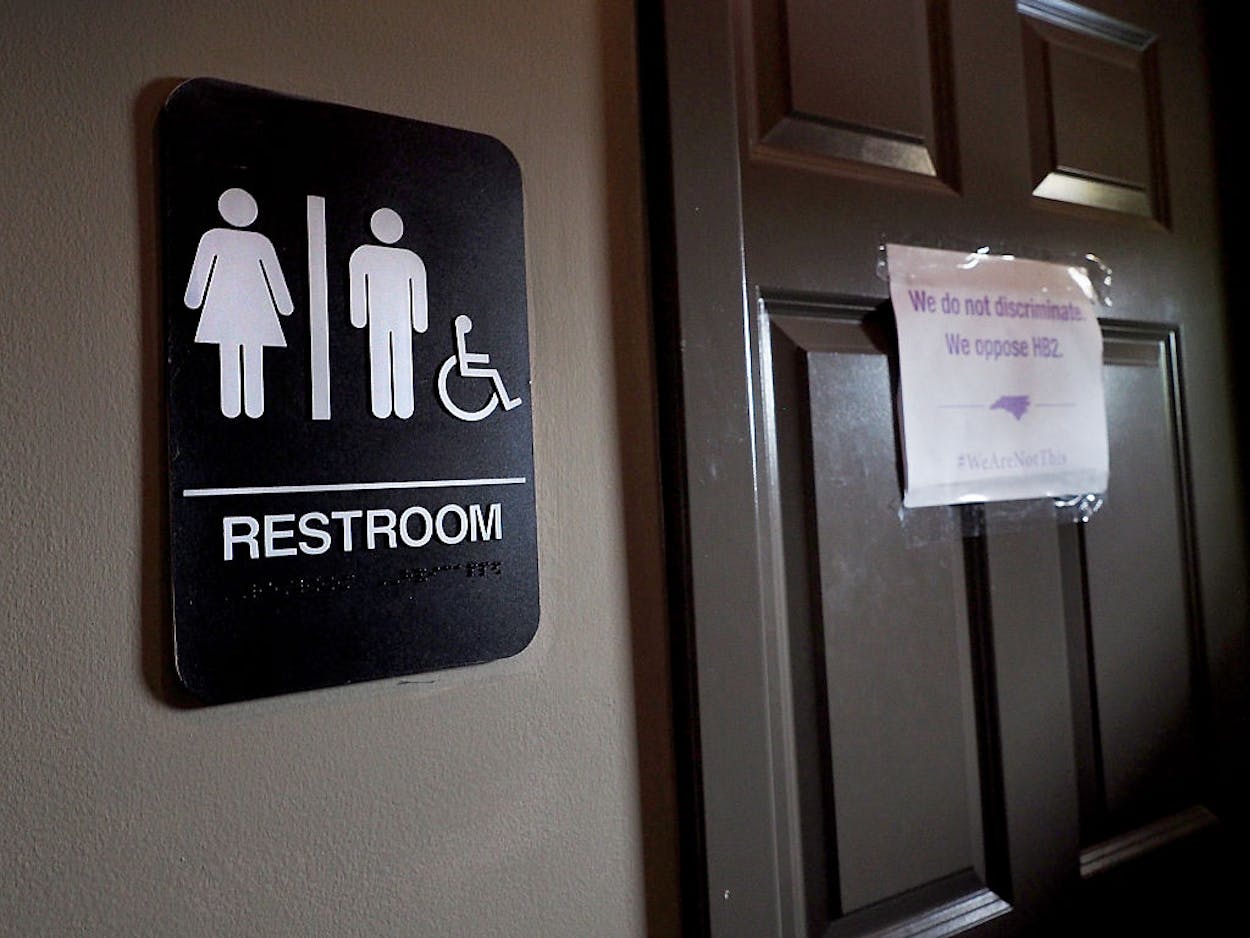In hopes of avoiding a special legislative session, House Speaker Joe Straus embraced what might be called Patrick Lite over the weekend—a toned down version of the lieutenant governor’s long promised bathroom bill. The final acquiescence occurred Sunday evening when the House did something Straus had implied would not happen on his watch: approved a bill that addressed who can use what bathroom. Earlier this year, Straus had called Patrick’s premier issue “manufactured and unnecessary,” stating on multiple occasions that he wouldn’t support the issue. But faced with Patrick’s pledge to force special sessions “again and again and again” until a bathroom bill passed, Straus apparently decided that retreat was the better part of valor.
When the key vote occurred on the bathroom legislation, it passed 91-50. Straus cast a white light on the House voting board—present but not voting. As we noted last week, Straus led the House in opposition to Patrick’s agenda until a small group of lawmakers known as the Freedom Caucus used House rules to kill some must-pass legislation. That gave Patrick the opportunity to demand passage of portions of his agenda.
The Senate version, Senate Bill 6, would restrict bathroom use in public schools, colleges, and government buildings to the gender designated on a birth certificate. The House version, attached as an amendment to Senate Bill 2078—which tackles school districts’ “multihazard emergency operations plans”—is limited to providing private bathrooms in public schools and open enrollment charter schools to children who want to opt out of bathrooms assigned to a specific biological sex.
Amendment sponsor Chris Paddie, a Marshall Republican, said the public school proposal will apply to transgender children, but also to children who are shy or are being bullied. Representative Larry Gonzales of Round Rock noted that it also will cover children with colostomy bags. But Representative Celia Israel, a Democrat from Austin, said there is no doubt that the legislation was a different version of the Senate’s controversial bathroom bill. “We’re getting rolled by the Senate,” Israel said.
After the vote, Straus issued a statement: “Representative Paddie’s amendment will allow schools to continue to handle sensitive issues as they have been handling them. I believe this amendment will allow us to avoid the severely negative impact of Senate Bill 6. Members of the House wanted to act on this issue and my philosophy as Speaker has never been to force my will on the body. Governor Abbott has said he would demand action on this in a special session, and the House decided to dispose of the issue in this way.”
Major boycotts occurred when North Carolina passed its own bathroom bill. There have been questions about whether the NCAA would cancel the 2018 Final Four basketball tournament in San Antonio if Texas’s bill passes. Chambers of commerce across Texas have opposed bathroom legislation.
But Straus had to weigh the likelihood that, if the failure of Patrick’s agenda led to a special session, it would be more difficult to prevent the more strident bill from passing in the House. Straus had never referred SB 6 to a committee for consideration.
On Saturday, the Straus team tried to satiate Patrick and Abbott on legislation to restrict property tax growth that finances the state’s cities and counties. The House’s Lite version would give taxpayers more information on which government bodies are raising their taxes. But it would not trigger the rollback elections demanded by Patrick and Abbott. Current law requires a tax election if rising property valuations create an effective tax rate 8 percent higher than the previous year. Patrick wants the rollback triggered at 5 percent. “We still have more work to do on property taxes. The session is not yet over.”
It seems like victory for Team Straus in his session might just be “it could have been worse.”






